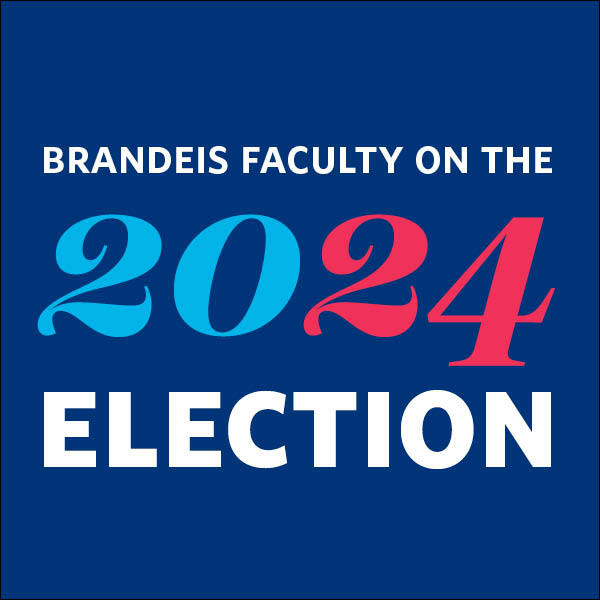How will a Trump vs. a Harris presidency affect U.S.-China relations?
In the run-up to the presidential election, Brandeis Stories asked university faculty to provide expert analysis and insight into some of the issues raised during this campaign season.

By Elanah Uretsky
October 29, 2024
 The United States’ bilateral relationship with China has led to important economic and scientific developments since relations were normalized in 1979. The upcoming election will likely have a profound effect on whether we can continue to reap the benefits of these developments.
The United States’ bilateral relationship with China has led to important economic and scientific developments since relations were normalized in 1979. The upcoming election will likely have a profound effect on whether we can continue to reap the benefits of these developments.
Donald Trump’s ascent to the White House in 2017 intensified a deterioration in relations with China that began under President Barack Obama. The Trump administration initiated a trade war with China after imposing tariffs of up to 25% on a range of Chinese items. Trump also disrupted critical scientific research with initiation of the China Initiative, a counter espionage program, that targeted Chinese academics and researchers working in U.S. labs and universities.
President Biden’s policies toward China continued to curb trade with China, but in a more targeted way aimed at protecting certain industries important to continuing U.S. economic progress. For example, Biden recently quadrupled tariffs, to 100%, on Chinese made electric vehicles. The China Initiative was ended under Biden, but certain Chinese graduate students are still being denied visas as part of the current national security strategy. And Biden has gone even further than Trump in restricting the export of certain technology products like semiconductors, to protect U.S. national security.
Many have discussed whether these tensions could lead to a decoupling of the Chinese and U.S. economies. But the two economies are too dependent on one another to do so. Trade policy under the Biden administration recognizes the impracticality of decoupling. So while trade and security policies under Biden have maintained and sometimes even extended restrictions enacted under Trump, they take a more intentional route at ensuring the sustained growth of the industries that are most important to American economic progress. Kamala Harris is likely to maintain the same strategy in her policies toward China.
Under a second Trump presidency, the U.S.-China relationship would likely suffer.
Another Trump presidency would take a turn inwards, enacting very aggressive restrictions on a broad swathe of Chinese imports that may include all electronics and other essential goods. He would also likely introduce a ‘witch hunt’ against anyone he considers a ‘Chinese spy.’ This would not only bring our economies as close as possible to a state of decoupling, but also disrupt more crucial scientific research. Both initiatives could endanger economic and scientific progress in the U.S. and globally.
Elanah Uretsky is Associate Professor and Chair, International and Global Studies Program.


